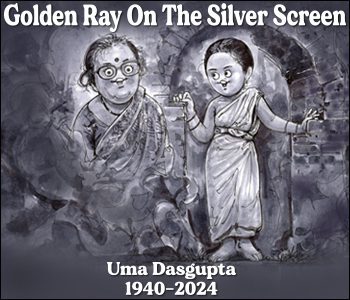Shankar Nair
A few of friends in our community say about 25 families have spotted a plot of land in the vicinity of sub-urban district of Bombay. they would like to get tenements and community Center for free use by “The Nairs” and commercial fee from others. If they get a green signal from legal point of view, they would like to strike a deal. Can you please guide on this?
I C Naik
Dear Mr Nair,
1.This is very good thought and also a good approach. In tough times people naturally think of closed communities of people with a common belief and faith. It’s a proactive approach in as much you people do not want to take chances with unpredictable bureaucracy working under politicians having established vested interests in anything and everything the bureaucracy is responsible for.
2. If we look at the proposal in a simplistic way, there is a proposal to register a housing society of the Nairs on a common plot of land. The Society’s definition reads differently after the Maharashtra Cooperative Societies (Amendment) Act 2013 (the M C S Amendment Act 2013) enacted to align provisions of the M. C. S. Act 1960 with the Indian Constitution as amended by the Constitution (97th Amendment) Act 2011 (97CAA).
3. New definition of a society which can be registered in Maharashtra is as under:
“society” means a co-operative society registered, or deemed to be registered, under this Act [which is an autonomous association of persons, united voluntarily to meet their common needs and aspirations through a jointly owned and democratically controlled enterprise and adhering to the co-operative principles and values”] Words in brackets are added by the M C S Amendment Act 2013.
4.The Registrar of Societies cannot register a society having the Bye Laws under which its membership is not open to all without gender, social, racial, political or religious discrimination. It is the very first of 7 cooperative principles which a registered society is required to adhere to. Section 4 and 9 of the M. C. S. Act 1960 requires that societies opposed to public policies are not to be registered.
5. The definition represents one of the public policies of the State going by the ratio of the Apex Court judgment in Zoroastrian Co-Operative Housing Society Limited And Another V. District Registrar Co-Operative Societies (Urban) & Ors [2005]RD-SC 253 (15 April 2005) rendered by The Bench Of B.N. AGRAWAL & P.K. BALASUBRAMANYAN.
6.Temptation to form cooperative housing society open to a particular community or to people of common faith and belief stems from the very judgment of the Apex Court referred to above. Zoroastrian Co-operative is a society registered way back in 1926 in the State of Bombay (now Gujarat) with the admission its membership reserved for Parsis only and that was confirmed by the Apex Court in 2005 as with in the fundamental right of the Parsis who formed the Zoroastrian Co-operative Housing Society.
7. The Apex Court upheld that a constitutional right to form an association included right not just to form cooperative society but also to let it continue to exist in accordance with its registered Bye Laws. Any law forcing Zoroastrian Co-operative to accept non Parsis as members was not enforceable. In fact the Apex Court had upheld the sanctity of fundamental right of choosing a kind of people of their choice to form and continue to libe in a cooperative housing society without any State interference.
8.As recently as in 2013 the Apex Court was examining the applicability of RTI Act as that was strongly opposed by Thalappalam Ser. Coop. Bank Ltd (Kerala) which was upheld by State Authorities and different benches of the Kerala High Court had divergent opinions. In Para 19 of the judgment on 7 October, 2013 Justice K.S. Radhakrishnan of SC noted.
” Rights of the citizens to form co-operative societies voluntarily, is now raised to the level of a fundamental right and State shall endeavour to promote their autonomous functioning. The Parliament, with a view to enhance public faith in the co-operative institutions and to insulate them to avoidable political or bureaucratic interference brought in Constitutional (97th Amendment) Act, 2011 (97CAA) which came into force on 15.02.2012”
9.The 97CAA supersedes any contradictory provision in any cooperative society law of a State. New Directive Principle of State Policy (New Art 43B) reads: The State shall endeavour to promote voluntary formation, autonomous functioning, democratic control and professional management of co-operative societies.’ Further in Art.243ZH ( c ) the Constitution defines “co-operative society” to mean a society registered or deemed to be registered under any law relating to co-operative societies for the time being in force in any State;
10.The Constitution mandates to the States is to align every State cooperative law inter alia to what is stated in previous Para in the back drop of what the Apex Court observed in Thalappalam Ser. Co op. Bank Ltd (Kerala) on 7 October, 2013.
11.The Apex court in Zoroastrian Co-operative case Para 21 ruled that:
a. Under the Indian Contract Act, a person sui juris has the freedom to enter into a contract. The bye-laws of a cooperative society setting out the terms of membership to it, is a contract entered into by a person when he seeks to become a member of that society. Even the formation of the society is based on a contract. This freedom to contract available to a citizen cannot be curtailed or curbed relying on the fundamental rights enshrined in Part III of the Constitution of India against State action.
b. A right to enforce a fundamental right against State action, cannot be extended to challenge a right to enter into a contract giving up an absolute right in oneself in the interests of an association to be formed or in the interests of the members in general of that association.”
c. The Apex Court was concerned about AA 14 and 15 in Part III of the Constitution namely :
Art. 14. Equality before law.—The State shall not deny to any person equality before the law or the equal protection of the laws within the territory of India.
“15. Prohibition of discrimination on grounds of religion, race, caste, sex or place of birth.—(1) The State shall not discriminate against any citizen on grounds only of religion, race, caste, sex, place of birth or any of them.
(2) No citizen shall, on grounds only of religion, race, caste, sex, place of birth or any of them, be subject to any disability, liability, restriction or condition with regard to—
(a) access to shops, public restaurants, hotels and places of public entertainment; or
(b) the use of wells, tanks, bathing ghats, roads and places of public resort maintained wholly or partly out of State funds or dedicated to the use of the general public.
12. The new definition of society goes beyond the specifications thereof contemplated under Constitution of India: the Supreme legal document from which all laws of the land flows. The stream cannot flow above its source. Definition of “Society” as per the State Law cannot expand its scope beyond what it meant as per Constitution ( there is a peril of abridging a fundamental right). The definition of society as per Section 2(27) the M. C. S. Act 1960 as reproduced above does not conform to that as per what it is meant to be in terms of Art 43B and its definition in Art.243ZH ( c ).The right to enter in “contract” (Signing the Bye Laws) as said earlier, has to be protected by the State.
13. It could be a long drawn legal battle as no dispute in this country gets resolved unless the Apex Court draws a curtain thereon, matter may be what ever consequence:
Let’s ponder:
a. Does there exist a “plausible rationale with in the scheme of things that 10-15 or 25 persons could be prohibited under the law from coming together to voluntarily agree (making a contract as represented by the Bye Laws) inter se to collectively buy and own a plot of land, construct dwelling units, Clubhouse, recreation facilities and Community hall and maintain as a collective responsibility of its members?. ALL WITH THEIR OWN HARD MONEY THE STATE CONTRIBUTING “NOTHING” “NOTHING”
b. In what sense a right to form a cooperative society is guaranteed as a fundamental right, if the people are not allowed to form a cooperative housing society commensurate with their collective vision, more particularly in the matter of choice of the people, they think they can live with, not just peacefully, but far more happily together THROUGH GENERATIONS, than living through their lives with the strangers? Like Nairs there are many who by birth are Brahims and strictly vegetarian and god fearing people. Should they not have their own cluster of residences to preserve their culture, faith and following? How can they be asked to put up with meat eaters just because they form a cooperative housing society? “A HUGE STATE ENDOWMENT OR WHAT?”
14. There is a strong case. Form a society on the basis of Letter of Intent to buy a plot WITHIN NEXT THREE MONTHS IF THE SOCIETY IS REGISTERED, THEN register it with bye laws before finally buying a plot that’s the advice. Best of Luck.












































